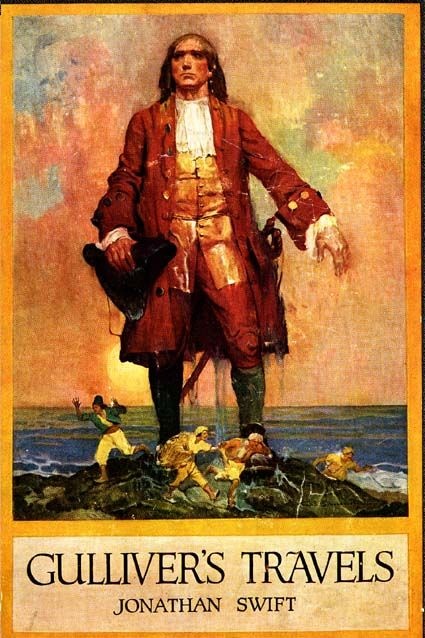"Gulliver's Travels" is very popular throughout the world. This book has an appeal among children, adults and aged men of all ages. The universality is here because the book, apart from being a satire on the early 18th century England, presents the moral state of all those nations where rules, laws and principles are toys in the hands of authorities.
Gulliver's Travels is one of those great works, which, like "Robinson Crusoe" affected the birth of English novel. In its narrative style, the work might have been drawn on the parody of "Odyssey" by Homer or an introduction to Utopia by Thomas More. The similarity of its style can also be traced in Cervantes' great work "Don Quixote".
Gulliver's Travels has been regarded as a mock Utopia. The literal meaning of Utopia is no place, nowhere. Thomas More gave this term to his ideal commonwealth. More's Utopia is a description by an imaginary traveler Raphael. In Gulliver's Travels, we find Gulliver replacing him.
Swift allows Gulliver to enter the company of the 18th century philosophers and to believe that humanity can enter into heavenly state if it is released from the bonds of superstitions and ignorance.
Swift is an austere moralist who searches for idealism. That is why he decides to fabricate an ideal imaginary state--utopia with Gulliver. When he brings his Utopian world in connection with prevailing social, moral and political conditions, we find his ideal state mocking the immoral human society. In this sense, Gulliver's Travels is different from the Utopian literature. It is rightly called a mock utopia.

In fact, the juxtaposition of the world of utopia and the world of Gulliver is the object of Swift's irony. S.H. Monk points out:
"Much of delight that we take in 'Gulliver's Travels' is due to this gay, comic and fanciful inventiveness."



